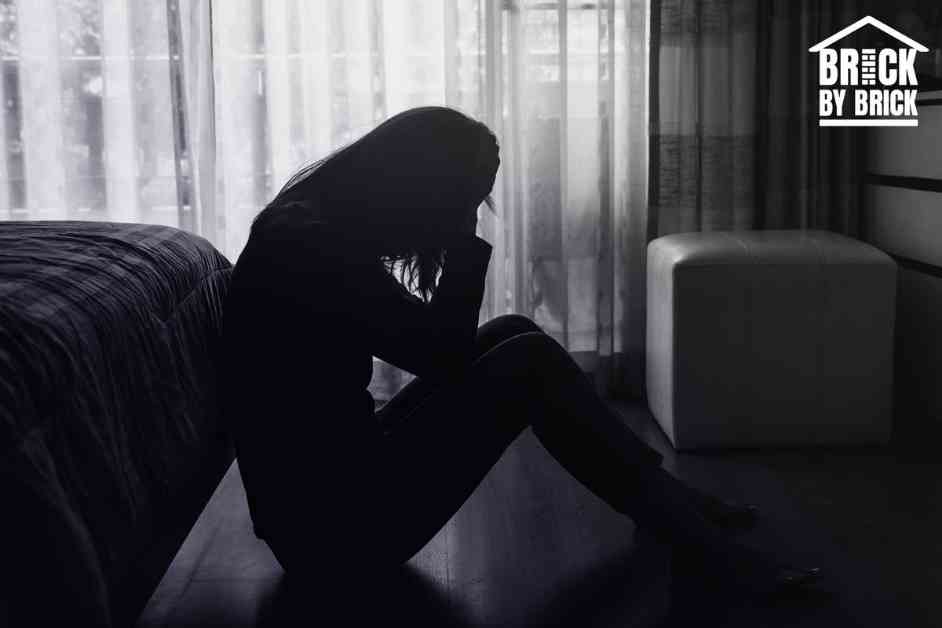Increasing Demand for Domestic Abuse Refuges
The latest statistics reveal a troubling trend where more than half of women seeking refuge from domestic abuse are being denied assistance due to a chronic national shortage of spaces. According to data from the Office for National Statistics, 27,754 women were referred to a refuge in England between April 2022 and March 2023, but only 10,824 were accepted. This leaves a staggering 16,930 women without a safe place to turn to, equivalent to one woman being turned away every two hours. These numbers paint a grim picture of the challenges faced by domestic abuse survivors in accessing the support they desperately need.
Exclusive data from Refuge shows a significant increase in the number of calls to the National Domestic Abuse Helpline seeking referrals to refuges. The helpline, which has supported 49,787 calls for help so far this year, has seen a rise in calls from survivors of domestic abuse. The charity is referring a record number of victims to local councils for homelessness, indicating a growing need for safe accommodation for those fleeing abusive partners.
Struggles of Domestic Abuse Survivors
Abigail Ampofo, interim chief executive of Refuge, highlighted the desperation felt by many survivors who are denied a safe place. She pointed out that while some may have the option of emergency temporary accommodation from local authorities or staying with friends and family, others are left with no choice but to sofa surf or face rough sleeping due to domestic abuse triggering their homelessness. The lack of refuge spaces puts these vulnerable individuals at risk of further abuse and harm, emphasizing the urgent need for adequate support and resources to address this crisis.
The domestic abuse commissioner for England and Wales, Nicole Jacobs, emphasized the critical nature of providing safe housing and support to victims at the most dangerous time when they are trying to escape abuse. She warned that being turned away from refuge spaces can expose survivors to serious harm, including the risk of homicide. The alarming reality of domestic abuse survivors being denied essential support underscores the urgent need for systemic changes to ensure their safety and well-being are prioritized.
Challenges Faced by the Domestic Abuse Sector
Jess Asato, MP for Lowestoft, highlighted the risks faced by victims who are turned away from refuges, putting them in danger of further abuse or even murder by their abusers. She stressed the importance of providing safe and protected spaces like refuges for victims to escape violence and emphasized the critical role these services play in saving lives. The domestic abuse sector has been under immense pressure for years, with charities struggling to secure adequate funding to meet the growing demand for support services.
Charlotte Kneer, who managed multiple refuges across Surrey, shared her perspective as a domestic abuse survivor and emphasized the devastating impact of being denied access to refuge spaces. She described the situation as horrifying and stressed the urgent need for improved access to safe accommodations for survivors fleeing abuse. The postcode lottery in refuge availability across different regions highlights the disparities in support services and the need for a more equitable distribution of resources to ensure all victims have access to the help they need.
Call for Action and Support
The government acknowledged the severity of the situation, describing the figures as appalling and recognizing domestic abuse as a scourge on society. They emphasized the importance of supporting the National Domestic Abuse Helpline and refuge services in keeping women safe from harm. The government’s commitment to addressing violence against women and girls as a national emergency underscores the need for sustained efforts to protect and support victims of domestic abuse.
In conclusion, the rising demand for domestic abuse refuges and the alarming trend of survivors being denied assistance highlight the urgent need for increased resources and support for those fleeing abusive situations. The stories of women turned away from refuge spaces underscore the life-threatening risks faced by victims of domestic violence and the critical importance of providing safe accommodations and support services to protect their lives. It is crucial for government agencies, charities, and the community to work together to address the systemic challenges in the domestic abuse sector and ensure that no survivor is left without the help they need to rebuild their lives and secure a safe future.












